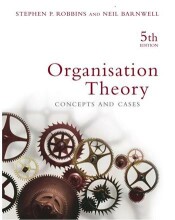Summary: Cross Cultural Management
- This + 400k other summaries
- A unique study and practice tool
- Never study anything twice again
- Get the grades you hope for
- 100% sure, 100% understanding
Read the summary and the most important questions on Cross Cultural Management
-
Chapter 1
This is a preview. There are 19 more flashcards available for chapter 28/01/2019
Show more cards here -
What does Cross-cultural competence require?
1. Knowledge of other people's beliefs, values and attitudes
2. The ability to appreciate and respect other people's feelings
3. The capacity to adapt one's own behaviour to the 'lore of the land'
4. The ability to reflect on one's own sensitivities and tacit cultural predispositions -
What is CCC built up of according to Zakaria?
1. Cultural awareness
2. Cultural sensitivity
3. Cultural adroitness -
What are the 4 Cultural Intelligence (CQ) categories?
1. Drive - capability to direct attention and energy toward learning about and functioning in situations characterised by cultural differences
2. Knowledge - of norms, practices, and conventions in different cultures acquired from education and personal experiences
3. Strategy - mental processes that individuals use to acquire and understand cultural knowledge including knowledge of, and control over, individual thought process
4. Dexterity - capability to exhibit appropriate verbal and nonverbal actions when interacting with people from different cultures -
Through what stages does culture evolve according to Tylor?
1. Savagery
2. Barbarism
3. Civilisation -
What is Geertz' definition of culture?
Culture is a historically transmitted fabric of meaning embodied in symbols, a system of inherited conceptions expressed in symbolic forms by means of which men communicate, perpetuate, and develop their knowledge about, and their attitudes toward life (symbolic/historical definition) -
Why is Geertz' definition of culture preferred?
1. It does not presuppose functionality
2. It is historical
3. It allows internal paradox
4. It aims to uncover the self-understanding of members
5. It stresses language as the vehicle of this self-understanding -
What are the 2 paradigms in social science?
1. Positivism
2. Social constructionism -
What are the characteristics of positivism?
1. Hypothetico-deductive model (preferably quantitative)
2. Both natural and social reality are ruled by causal laws, that are valid no matter our knowledge of them
3. Social science must follow the example of the natural sciences to discover the laws of human behaviour and interaction
4. The truth of scientific knowledge is not dependant of the recognition of humans. Reality doesn't care what we believe -
What are the characteristics of social constructionism?
1. Interpretive (hermeneutic) model (largely qualitative)
2. Social reality depends largely on the meaning that we bestow on it. We enact our world views in our behaviour
3. Reality is not objective, but intersubjective (reflects shared fantasies)
4. Social science tries to capture the sense making work (vocabulary) that people engage in to justify their behaviour. Something can only be true within the context of such vocabularies -
What issues were there during culture studies?
1. Until 1960, anthropology disregarded issues of method
2. Ethnocentrism vs cultural relativism
3. The position of the researcher was problematised
4. The etic/emic distinction debate
- Higher grades + faster learning
- Never study anything twice
- 100% sure, 100% understanding































